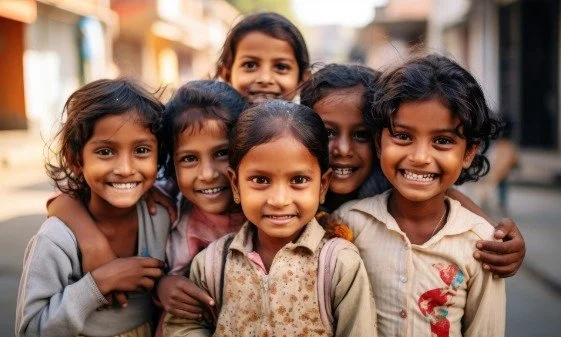Educate Girls Becomes First Indian NGO to Win Magsaysay Award
Group Recognised for Mobilising Rural Communities to Support Girls’ Education
September 1, 2025
“Educate Girls” has become the first Indian non-profit to win the Ramon Magsaysay Award, often called Asia’s Nobel Prize. The group, officially the Foundation to Educate Girls Globally, was honored for helping girls from remote villages across India get back into classrooms and stay there. It aims to reach 10 million learners across India by 2035.
The Ramon Magsaysay Award Foundation, which announced the decision on Aug. 31, said Educate Girls had tackled social and cultural barriers to girls’ education by helping them gain skills, confidence and a sense of agency. The award is among the region’s most prestigious honours for public service and leadership.
Founded in 2007 by Safeena Husain, Educate Girls began as a community-led effort to help girls from remote villages in India enrol in school and complete their education. The group now works in more than 30,000 villages and has helped over 2 million girls access education, according to the group’s website. It has also helped 2.4 million children catch up on basic reading and math, and built a network of 23,000 local volunteers.
Educate Girls focuses on villages where large numbers of girls are either out of school or at risk of dropping out. It uses a data-based method to identify where the need is highest and then works through community volunteers who support girls in joining or returning to school. The model relies on close cooperation with families, teachers and village leaders, rather than creating separate programs or schools.
To help girls who missed out on education altogether, the group runs a second-chance program that allows them to complete their studies outside the formal system. It also runs foundational learning sessions in literacy and math for younger children, including boys. The efforts seek to complement existing government education schemes such as the Right to Education Act, Samagra Shiksha and the National Education Policy, which aim to improve school access and learning outcomes in India.
In 2015, Educate Girls tried out a new way to fund its work. It teamed up with two global philanthropic foundations to launch a three-year experiment called the Development Impact Bond, the first of its kind in education anywhere in the world. Under this model, a private investor provided the money upfront. If Educate Girls succeeded in meeting specific targets, such as getting more girls enrolled and improving their learning levels, the investor would be paid back, with interest, by a different funder.
Further, the results were measured by an independent evaluator, not by the organisation itself. Since the repayment depended entirely on real progress, not just effort or intentions, the model became a global example of how to link money to actual results in development work.
Husain has received several global honours for her work. In 2023, she became the first Indian woman to win the WISE Prize for Education, and earlier this year, she was awarded an honorary doctorate by the London School of Economics. She has also received the NITI Aayog Women Transforming India Award and the Skoll Award for Social Entrepreneurship.
Educate Girls was one of the first Indian groups selected by the TED Audacious Project, a global collaborative fund that supports ambitious social initiatives.
Husain, who grew up in New Delhi, studied at the London School of Economics and previously led a public health nonprofit in San Francisco. She is married to filmmaker Hansal Mehta and is the daughter of the late actor Yusuf Husain.
On the Educate Girls website, Husain recalls meeting a girl who had never been asked what she wanted to become. That moment, she says, pushed her to start the organisation, which later helped the same girl enrol in school and aspire to become a police officer.
The group’s current chief executive, Gayatri Nair Lobo, is leading a long-term plan to reach 10 million learners across India over the next decade. With a background in education and sustainability, she has held leadership roles in organisations working on school reform, agriculture, water conservation and nonprofit capacity building. She also worked in consulting firms where she led projects in education, infrastructure and retail.
Lobo’s earlier roles include leading Teach For India’s operations, where she helped expand the program to more cities and built its delivery systems. She says her focus at Educate Girls is on deepening the group’s presence in hard-to-reach areas while building stronger grassroots leadership.
Educate Girls now uses artificial intelligence (AI) tools to locate villages with high numbers of out-of-school girls. Its programs, Vidya and Pragati, are aimed at bringing students back into the classroom and improving their academic progress. The organisation wants to deliver results without duplicating what the government is already doing, working instead to strengthen existing systems with community-led support.
The other recipients of this year’s Magsaysay Award are Shaahina Ali from the Maldives and Flaviano Antonio L. Villanueva from the Philippines. Each awardee will receive a medallion bearing the image of former Philippine President Ramon Magsaysay, a certificate and a cash prize.
The awards ceremony will take place on Nov. 7 at the Metropolitan Theatre in Manila.
You have just read a News Briefing by Newsreel Asia, written to cut through the noise and present a single story for the day that matters to you. Certain briefings, based on media reports, seek to keep readers informed about events across India, others offer a perspective rooted in humanitarian concerns and some provide our own exclusive reporting. We encourage you to read the News Briefing each day. Our objective is to help you become not just an informed citizen, but an engaged and responsible one.

